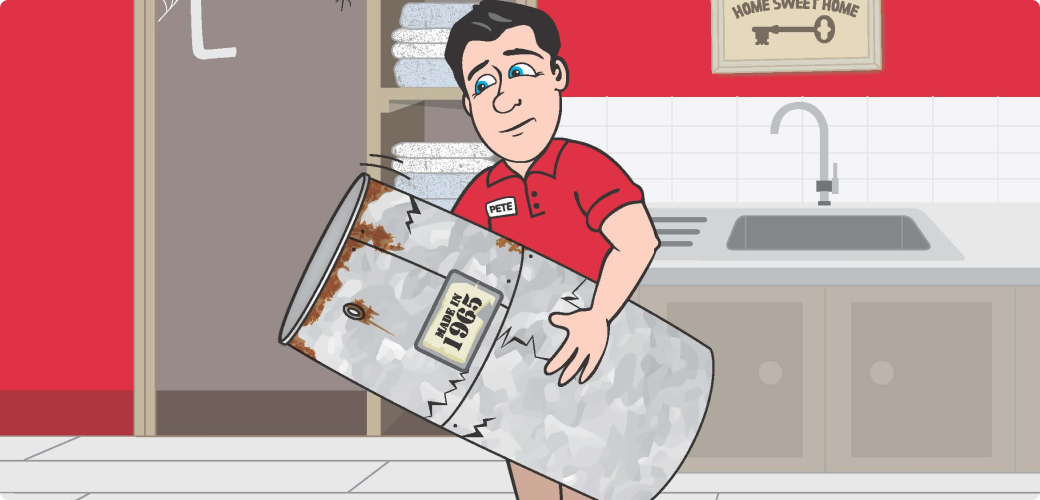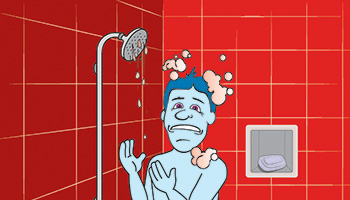Chlorine Causing Issues With Pipes And Cylinders
While corrosion and leaks to water pipes and hot water cylinders can be caused by a number of things, it is widely understood that chlorinated water can contribute to the issue. The compounds in chlorine react with copper, steel and plastic polyethylene pipes in varying degrees potentially causing premature bursts or leakage.
The practice of chlorinating water has been around since the early 1900’s in some countries, in New Zealand we are lucky enough to have had many years of chlorine free water supply and in fact several water supplies around the country remain untreated (Christchurch is currently the largest populated area).
In recent times however, there have been calls for mass chlorination particularly after water contamination issues in Havelock North. Although it is obvious clean drinking water is a necessity, chlorination of the water supply has proven to be somewhat problematic for hot water cylinders and plumbing fixtures and fittings.
Things To Look Out For
While avoiding chlorine is difficult where water is mass treated, it is important to understand the additional potential for degrading of pipes, fixtures and fittings and hot water cylinders in order to pre-empt future failures. Here are a few things to keep a look out for.
- Pipes, plumbing and hot water cylinders over 10 years old in towns and cities with chlorinated water supplies
- Copper piping or fittings (anything dating around 1960’s and 70’s is particularly problematic)
- Visible evidence of corrosion around hot water cylinder valves
- Pin hole leaks in calcified pipes and joiners
- Hard water (naturally high levels of calcium) is likely to intensify corrosion issues
- Discoloured water or blue-green stained sinks, drains and baths
The Causes Of Corrosion
Corrosion in household piping or hot water heating systems and the rate at which it occurs can usually be associated with one or any combination of the following factors.
- PH Levels. Copper piping systems in particular are prone to damage if the pH of the water is under a certain level. The protective barrier of the pipe gets damaged which leads to a more rapid rate of corrosion.
- Temperature. The hotter the environment the pipes and fittings are exposed to, including the temperature of the water can also contribute to increased corrosion.
- Chemicals. Naturally and not so naturally occurring minerals and impurities in water can increase corrosive levels in different ways. For example high levels of calcium in water leads to a calcification build-up in pipes and fittings and chlorine introduced into the water supply has been known to accelerate the corrosive action of both metal and plastic plumbing fixtures.
- Oxygen. Oxygen naturally degrades metal resulting in rust. Whether it is in pipes, hot water cylinders, cars, buildings or anywhere else for that matter, rust is gradual and inevitable.
The Effects Of Corrosion
The cost of corrosion can be expensive; it can impact your health, waste money, and damage other household fittings. Leaks that go unnoticed due to corrosion can prove expensive and even result in the need for the building to be completely re-plumbed. Corrosive water can impact:
- Hot Water Heaters. Decreasing the efficiency and potentially causing premature failure.
- Household Plumbing. Corrosion can cause premature failure of household plumbing and plumbing fixtures.
- Taste And Appearance. Elevated levels of metals leaching from the pipes can impact the taste and appearance of the water (reddish coloured water or green-blue stains are most common).
- Toxicity. Prolonged consumption of contaminated water with elevated levels of metals, such as chromium, lead, zinc and copper, has been known to cause a wide range of health problems
It is strongly recommended that homeowners have household water tested regularly (approximately every 2 to 3 years) for evidence of corrosive materials and toxicity. Ignoring corrosion or simply hoping it isn’t happening is not a good idea.
Pete and the team are here to help if you'd like more information or advice



